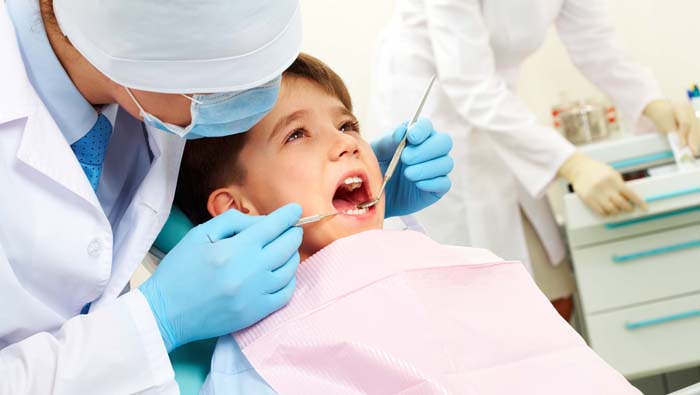
Muscat: Some 85 per cent of children between the ages of six and eight suffer from tooth decay, according to the latest statistics from the Ministry of Health.
“This is a very alarming number, but it signifies the effect of parents’ lack of education over the oral health of children,” said Dr. Khulood Al Sinaidi, a dentist at Jalan Bani Bu Ali hospital.
“Per day, we receive 50 patients, of which more than 25 per cent are children.”
In the annual 2016 report by the Ministry of Health, the oral health of 82,116 first and second grade students was studied, and it was found that “students with dental cavities amount to 85 per cent, while 30 per cent of students have more than five teeth decayed, extracted or filled”.
Dr. Priya Rajeev from Al Essa Dental Centre said, “It is common for this age group to see a high number of dental cavities; we receive approximately 20-30 cases per month. Many times, the causes are improper brushing or dietary habits; however, there have been cases where the cause for tooth decay is genetics.”
The region with the highest rate of decay is Musandam, with 95 per cent of children in first and second grades suffering from cavities, while Muscat has the lowest rate of tooth decay in six- to eight-year olds, with 79 per cent.
“You must consider the living standards of different regions, the types of food different families eat. The most important factor is awareness. Parents must teach their children how to take care of their teeth,” Al Sinaidi said.
Alia Al Sulimi lives in Izki and has a daughter that struggles with dental issues.
“My daughter is in the first grade and already has five decayed teeth. After we discovered them, I began taking her to the dentist regularly and ensuring she brushes her teeth properly,” she said.
Struggling with oral health from such a young age can be tough as the child grows up. Halima began going to the dentist since she was nine years old. “I remember going to the dentist more than any other doctor, I used to go three times a year and as I went into my teenage years, the visits were cut to twice a year,” she said.
“I had fillings in four teeth, and before I was 16, I had already taken one of my wisdom teeth out, I am 22 years old now and I’ve already had braces, a root canal treatment and a gum surgery done. Going to the dentist for so many years had made me more aware of my oral hygiene and I have been improving it,” Halima added.
According to the Ministry of Health, there have been 2,812 tooth-brushing drills at schools around the Sultanate.
Private schools have also been campaigning for oral hygiene. Pakistani schools in Muscat have been holding medical camps on a quarterly basis for the past two years.
“We started this drill two years ago and it has been extremely successful in keeping up with the health needs of the children,” said Khalid Jadoon, Principal, Pakistan School Muscat.
Indian School Darsait’s principal Sridevi Tashnath said: “We try to raise awareness about health issues at our orientations. Our goal is to sensitise children and parents about health hazards. Many children tend to skip breakfast in a hurry to get to school. We tell them about the importance of the first meal of the day and ask them not to skip it. We also have an infirmary to tend to children’s health if they feel ill.”
Nasria Al Maqhusi, whose daughter is in the first grade, said: “Two of my daughter’s teeth have decayed. She now brushes her teeth twice a day. I think the reason she has a decay at such a young age is because of a weakness in the structure of her teeth, and due to eating fast foods.”